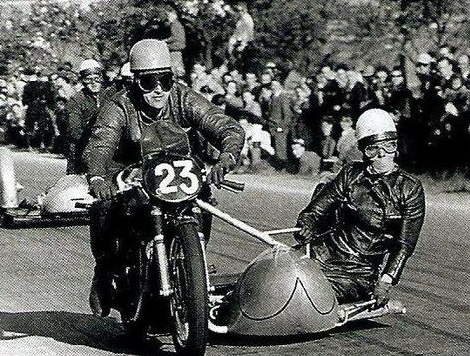 |
Butterfly is under-gasoline...
|
Weather's closing in on us up here in Canada. I had the 'Blade up on the bike lift last week thinking the riding season was over as we got buried in our first snow storm. The next week suddenly warmed up due to a tropical storm somewhere, so I primed the Honda and got it going again (I'd run it dry in preparation for winter hibernation). Unfortunately, it flooded itself and ended up with the first two carbs full of fuel. You can see the wet in carb bell on the left.I think from now on I'm going to turn off the fuel tap from now on whenever it's sitting rather than trust this touchy carb set to do the right thing. Instead of taking the Fireblade out for a weirdly warm ride on Sunday, I was sitting on the driveway removing the carbs and changing the oil.
On the upside, pulling the carbs gave me a chance to replace all the rubbers (airbox and engine side), which needed doing (I'd been holding them together with some cunning chemistry).New rubber bits on old bikes make a huge difference. Even the engine side ones (which still looked good after 23 years of service) were hard and unyielding compared to the new ones. I'm curious to see how the new ones seal in comparison. I got the airbox rubbers from KW Honda in Waterloo, who were very responsive on email which hasn't always been my experience with local dealers. They got four rubber airbox boots for a 23 year old bike that's been out of production for decades in less than a week, during a pandemic. It's good to know my local Honda dealer supports older models.

I picked up a second carb set from NCK Cycle Salvage in Woodstock last fall for less than the price of the broken bits I needed to replace on the one that came on the bike. I now have an entire second set of carb hard parts I can go to if I need any other bits. The set they gave me (other than needing a choke pin on one of the carbs) was complete and balanced, and when I threw it on it worked a treat, so I ran it all summer having never gone through it.
With the carbs off in the late autumn sun last Sunday, I finally took the float bowls off and discovered that they were pretty grotty (when I emptied them the fuel came out brown). It didn't take long to clean everything up, and I got carb cleaner deep into the jets and upper parts of the carburetors too. It all went back together nicely and I was also able to lubricate and clean up the throttle action with the unit out, though it already moved sweetly.With the new rubbers on, I put the carbs back on after work this week and they came back together nicely. It's a good idea to attach the two throttle cables to the carb set while it's still loose. Once the carb set is on the bike getting the cables on is a real bugger.I went over all the fasteners as I went making sure everything was snug and leak free. I've still got to put new oil in it, but we have a above zero day this Saturday so I'm hoping I can take the 'Blade out for an end of year run to make sure everything is five by five before I hibernate it for the winter. Months hence after the winter of second-wave COVID pandemic, the Honda will be ready to go with fresh oil and a clean and capable set of carburetors.This forgotten Honda is a real treat to ride this summer and is a very different thing from the Tiger. One is a long distance tool built for pretty much anything, the other is more like an aeroplane designed for the road. The 'Blade weighs over 20% less than the Tiger and makes almost 40% more power. On interesting paved roads the Fireblade is in a class by itself. Unfortunately, I live in a place deficient in interesting roads and track days in Ontario, even when there isn't a pandemic, are needlessly complicated (you basically have to show up with a race bike or rent something, there are no ride-on days for road bikes here).
The other nice thing about the Honda is how it's built for a single intention. That focus on light-weight means getting in to work on it has been accessible and enjoyable. Honda's aren't just designed ot run well, they're designed to be worked on too. As my first Honda this bike has been a positive introduction to their engineering and design philosophy.
If I lived somewhere with interesting roads and reasonable track days I'd be hanging on to the Honda indefinitely as it was designed to express the dynamics of riding, but living in South Western Ontario, devoid as it is of interest, means I'm going to try and move the Honda on in the spring... assuming anyone is left post second-wave to buy it then. I'm going to miss what it can do though. Having this bike has opened my eyes to what a motorcycle is capable of dynamically.
FOLLOWUP
We've got a major winter storm (100km/hr+ winds, rain and snow mixed) rolling in, but I got out yesterday afternoon for an hour and the 'Blade is even sharper than it was before. The new rubber seals tighter, making the engine even more responsive, and the cleaned carbs are razor sharp in responding to throttle. When I got home (cold, it was only a degree or two above freezing), I closed the petcock and ran it dry before parking up the 'Blade and wrapping it up for the winter.
After our long cold winter with second wave COVID19 piled on top, it'll be ready to go in the spring...


















.jpg)















